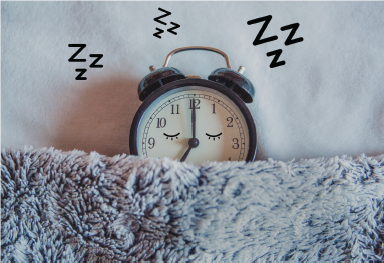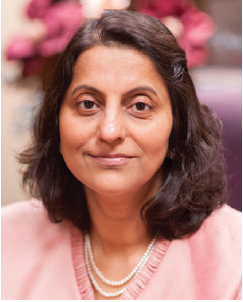
Changes in the body can lead to challenges at bedtime.
Adults need between seven and nine hours of sleep a night. That remains true even as, in middle age and beyond, adults undergo physical changes that affect sleep patterns, says Mangala Nadkarni, MD, Director of the Center for Sleep Disorders at Cooperman Barnabas Medical Center (CBMC).

For reasons that aren’t well understood, the circadian rhythm—the internal clock that sets the body’s sleep-wake cycle—begins to shift as people age.
“The internal clock moves backward somewhat,” Dr. Nadkarni explains. “Most people start going to bed earlier and waking earlier.”
Cardiovascular disease and lung conditions, which are more likely to emerge later in life, can interfere with sleep. In addition, common conditions and sleep disorders are more likely to affect people as they age. These include:
- Restless legs syndrome, or RLS, a prickling or tingling sensation that can only be relieved by moving or massaging the legs.
- Sleep apnea, brief pauses in breathing caused by soft tissue blocking the airway in the rear of the throat.
- Nocturia, the frequent need to urinate during the night.
- Hormonal changes. For women, a decrease in estrogen during menopause can cause hot flashes.
Sleep Better Tonight
Despite these challenges, better sleep is possible—and essential, Dr. Nadkarni says.
“Sleep is very important for heart and brain health. It’s like a nightly concert, where everything needs to be in sync for you to feel rested in the morning,” she says. Her suggestions:
- Get some sunlight during the day. The sun suppresses melatonin, a hormone that plays a role in sleep. During the evening the melatonin will rebound and help with falling asleep.
- Engage in physical and mental activity during the day.
- Don’t eat or drink caffeine or alcohol too close to bedtime.
- Turn off your electronics an hour before bed.
- Keep your bedroom cool, dark and quiet.
- Go to sleep and wake up at the same time, even on weekends.
“It’s OK to take a nap during the day to compensate for lack of sleep,” Dr. Nadkarni says, “but for no more than 30 minutes.”
Could it be a sleep disorder?
If sleeping problems are significantly interfering with your daily life, you may benefit from an expert evaluation. Signs you may need a sleep disorder study include the following:
- Excessive snoring, which may include brief cessation of breathing, a sign of sleep apnea.
- Difficulty falling asleep or staying asleep.
- Excessive daytime sleepiness.
The first step is to see your primary care physician to discuss your sleep problems. Keep a log of your sleep patterns and show your doctor. The Center for Sleep Disorders at CBMC offers advanced diagnostics and treatments for sleep disorders, along with many amenities to enhance the test experience.
To learn more about the Center for Sleep Disorders at Cooperman Barnabas Medical Center, call 973-322-9800.